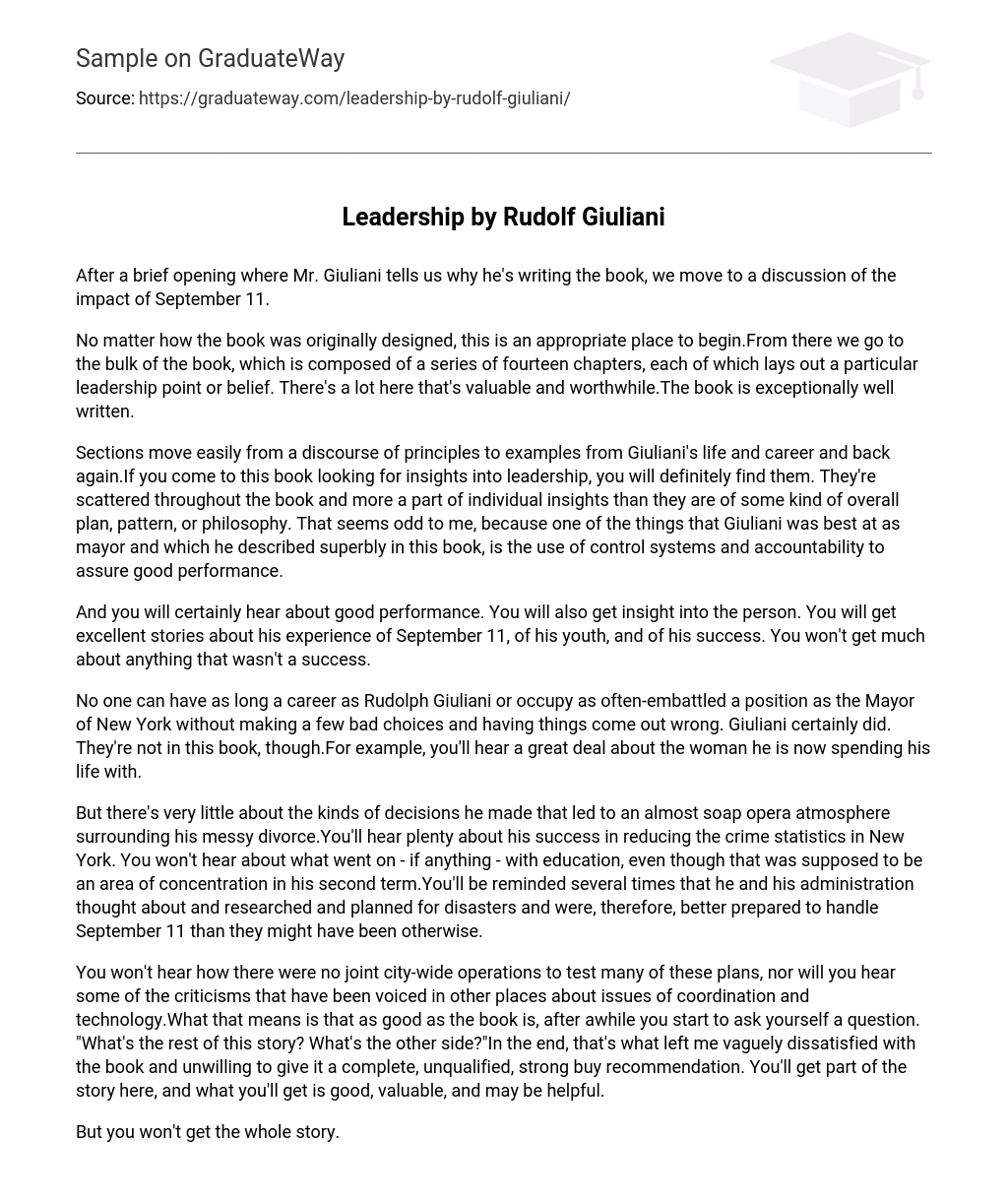After a brief opening where Mr. Giuliani tells us why he’s writing the book, we move to a discussion of the impact of September 11.
No matter how the book was originally designed, this is an appropriate place to begin.From there we go to the bulk of the book, which is composed of a series of fourteen chapters, each of which lays out a particular leadership point or belief. There’s a lot here that’s valuable and worthwhile.The book is exceptionally well written.
Sections move easily from a discourse of principles to examples from Giuliani’s life and career and back again.If you come to this book looking for insights into leadership, you will definitely find them. They’re scattered throughout the book and more a part of individual insights than they are of some kind of overall plan, pattern, or philosophy. That seems odd to me, because one of the things that Giuliani was best at as mayor and which he described superbly in this book, is the use of control systems and accountability to assure good performance.
And you will certainly hear about good performance. You will also get insight into the person. You will get excellent stories about his experience of September 11, of his youth, and of his success. You won’t get much about anything that wasn’t a success.
No one can have as long a career as Rudolph Giuliani or occupy as often-embattled a position as the Mayor of New York without making a few bad choices and having things come out wrong. Giuliani certainly did. They’re not in this book, though.For example, you’ll hear a great deal about the woman he is now spending his life with.
But there’s very little about the kinds of decisions he made that led to an almost soap opera atmosphere surrounding his messy divorce.You’ll hear plenty about his success in reducing the crime statistics in New York. You won’t hear about what went on – if anything – with education, even though that was supposed to be an area of concentration in his second term.You’ll be reminded several times that he and his administration thought about and researched and planned for disasters and were, therefore, better prepared to handle September 11 than they might have been otherwise.
You won’t hear how there were no joint city-wide operations to test many of these plans, nor will you hear some of the criticisms that have been voiced in other places about issues of coordination and technology.What that means is that as good as the book is, after awhile you start to ask yourself a question. “What’s the rest of this story? What’s the other side?”In the end, that’s what left me vaguely dissatisfied with the book and unwilling to give it a complete, unqualified, strong buy recommendation. You’ll get part of the story here, and what you’ll get is good, valuable, and may be helpful.
But you won’t get the whole story.





